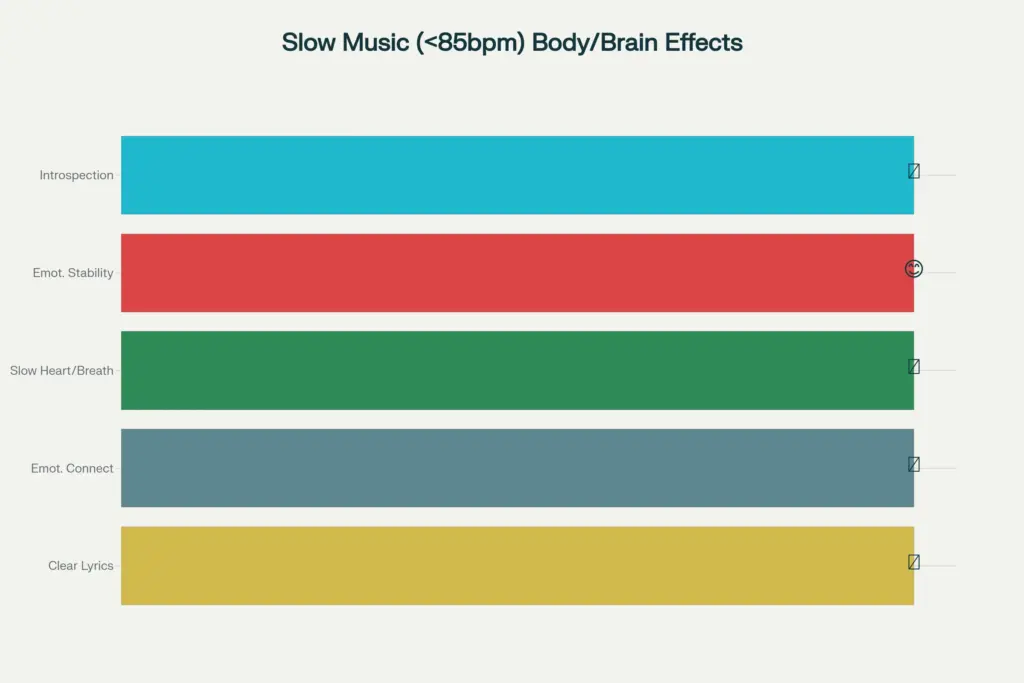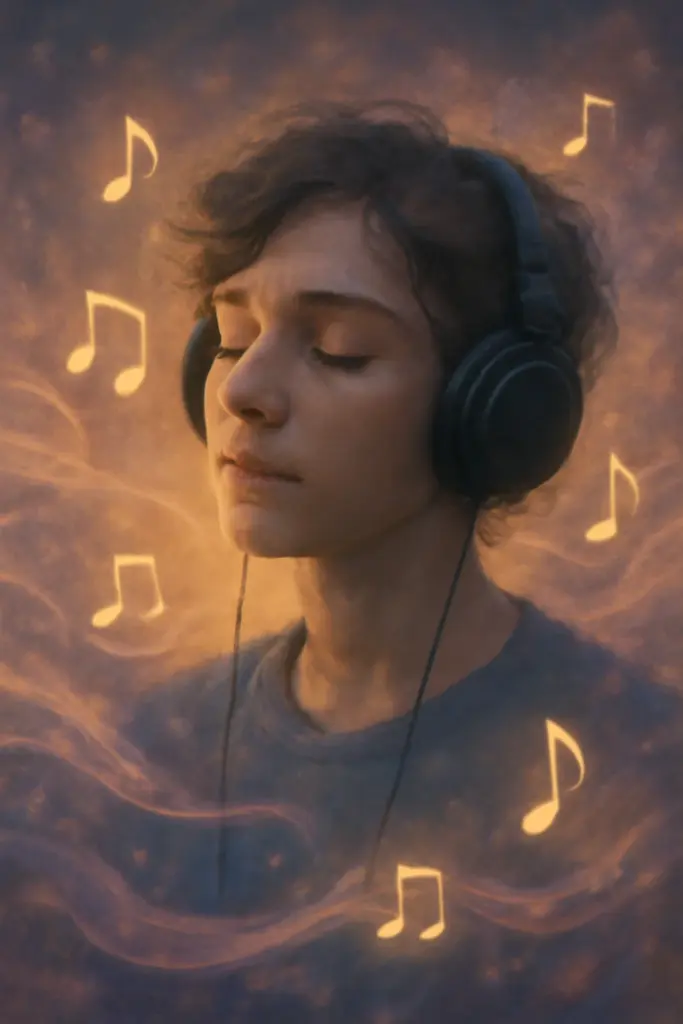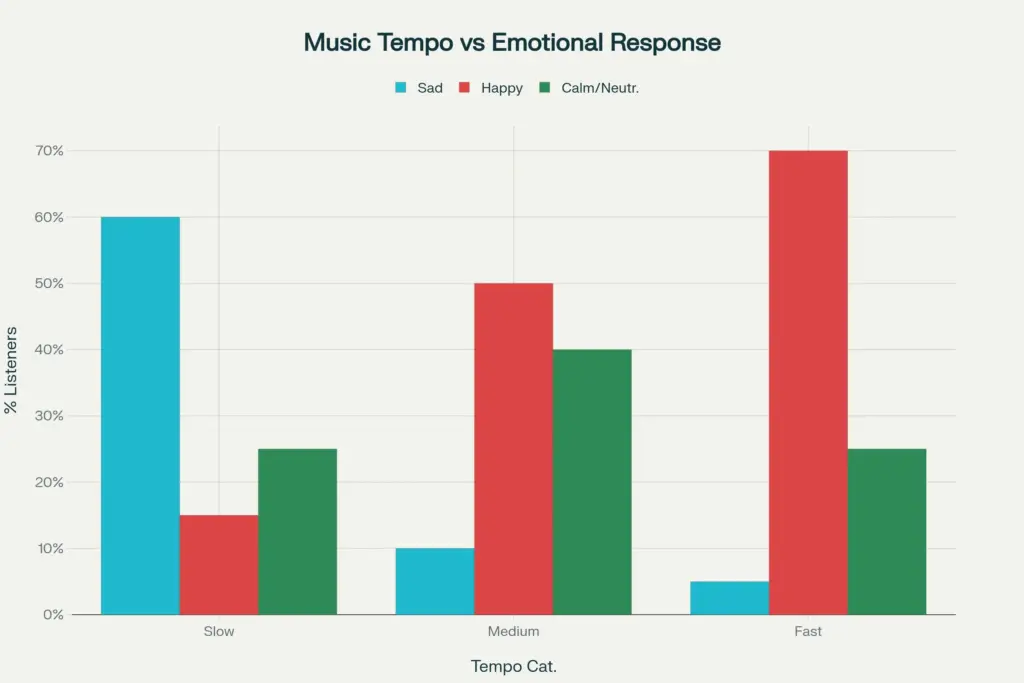It’s a quiet evening, and you hit play on a slowed-down version of your favorite song. The notes linger, the lyrics seem to sink deeper, and suddenly the whole track feels heavier—more emotional, more personal. It’s a sensation millions have felt, as slowed and reverbed edits have gained an almost cult-like following online.
But why does this simple edit make music resonate so much harder? Is it just nostalgia, or is there a deeper psychological and physiological story at play? This article dives into the reasons, from science and sound production to first-hand Reddit stories, examining why slowed music so often feels like it’s speaking directly to the soul.
What Does “Slowed Music” Mean?
Slowed music often refers to tracks where the tempo is reduced, sometimes paired with increased reverb, creating what many recognize as the signature “slowed + reverb” sound. It takes energetic original tracks—pop, hip-hop, R&B—and gently drapes them in a layer of dreamy melancholy, sometimes uncovering textures and details that go unnoticed at regular speed.
The Science Behind the Slowdown
The Psychology of Tempo
Research consistently shows that tempo plays a pivotal role in how we perceive emotion in music. Slow tempos are generally associated with feelings of sadness, nostalgia, or calm, while fast tempos tend to evoke excitement or happiness.
“A slow tempo is one cue that can suggest different things. It could be peaceful and relaxed rather than sad, but when combined with other cues, it is probably going to suggest a low level of energy or activity…” — r/musictheory user
Brain Response & Emotional States
Slowed music doesn’t just play with our ears; it syncs with our brain. Studies using brain imaging reveal that different tempos affect the way various regions within the brain synchronize—slow tempos increase connectivity in areas linked to introspection and emotional stability, while fast tempos ramp up arousal and engagement. The table below summarizes scientific findings:

The Role of Heart Rate and Arousal
When we listen to slow music, our physiological state changes—our heart rate may decrease, breathing may slow, and the body enters a more relaxed state. This “slowing down” mirrors what we feel during moments of reflection or sadness, creating a feedback loop that deepens the emotional effect.
How Slowing Music Changes its Feel
Lyrics & Lyrical Impact
At a slower speed, lyrics are easier to follow and digest. Subtle emotions, pauses, and word choices become more pronounced, allowing listeners to connect more deeply with a song’s message. Redditors often mention that lyrics “hit different” when slowed.
Instrumentals & Sonic Space
Slowing a track gives individual sounds and instrumental lines more room to breathe. Complex harmonies, subtle synths, or haunting background notes suddenly emerge, giving a track new depth. As one producer notes:
“Slowing the pace of a track down, you’re going to hear all these little details that you didn’t catch before… it’s a whole new edit or remix.” — Iago, music producer
Changing the Mood Entirely
Many users say upbeat tracks become melancholic or nostalgic when slowed—a party anthem transforms into a late-night reflection piece. The shift is so powerful that people curate playlists of slowed remixes for emotional moments, night drives, or times when they need to just feel.

First-Hand Reddit Experiences
Reddit is a goldmine for raw, unfiltered perspectives on this trend:
- Atmosphere and Immersion: “It helps with relaxing, chilled out atmosphere…. I feel that slowing modern songs, especially R&B and rap can do wonders to emphasize production and better unify an artist with their background music… I think another reason for the emotional reaction is that the listener can better focus on the lyrics as well.”
- Changing Vibe: “An otherwise upbeat song can turn into a mellow song. This is especially apparent during a late-night trip to the gas station.”
- Intimacy and Reflection: “I’ve been vibing to slowed and reverb for 2 years and I love it so much! … I upload daily or every second day … it’s like the musical equivalent of a TikTok filter.”
- Intimacy and Reflection: “I’ve been vibing to slowed and reverb for 2 years and I love it so much! … I upload daily or every second day … it’s like the musical equivalent of a TikTok filter.”
- Personal Connection: “The songs come to life when you’re drunk. It’s like a soothing lullaby…”
The diversity in responses shows that for some, it’s a style and a mood; for others, it’s therapeutic or even transformational.
Social and Cultural Reasons Why Slowed Edits Trend
Slowed music’s rise coincides with other digital and social trends:
- Association with Visuals: YouTube and TikTok videos often pair slowed music with anime loops, neon cityscapes, or rainy night windows, deepening the nostalgic feel.
- Pandemic Solitude: The format exploded during pandemic lockdowns, as listeners searched for music that matched lonely, introspective moments.
- Remixing & Accessibility: Anyone with basic software can create slowed edits, democratizing both music production and emotional connection.
Data Table: Effects of Music Tempo on Emotional Measurement
| Tempo | Happy (%) | Sad (%) | Calm/Neutral (%) | Typical Use Cases |
|---|---|---|---|---|
| Slow | 15 | 60 | 25 | Relaxation, reflection |
| Medium | 50 | 10 | 40 | Everyday tasks, study |
| Fast | 70 | 5 | 25 | Exercise, celebration |
Percentages represent the likelihood of listeners describing typical music at that tempo with the given emotional label.

Why Do Slowed Songs Sometimes Feel “Sad”?
There’s a psychological catch: slow tempo, especially combined with minor keys and sparse arrangements, closely matches “sad” emotional states. Our brains naturally align slow, drawn-out sound with feelings of sorrow or longing, much like our movements and voices slow down when we’re sad.
Criticisms & Counterpoints
Not everyone is on board, of course. Some listeners argue that slowed edits are low-effort or that the novelty will wear off. Others counter that emotional resonance matters more than technical complexity, and the accessibility of the format is a big part of its appeal.
Final Thoughts
The emotionally charged effect of slowed music is more than a passing trend. It’s a multifaceted experience shaped by our brains, bodies, and the social world around us. Slowing a song lowers our arousal, exposes hidden details, lets the lyrics land differently, and creates space for nostalgia and vulnerability.
But perhaps the reason slowed music feels more emotional is ultimately simple—it gives us time to process, to listen more closely, and to feel, deeply and undistracted.
Frequently Asked Questions
Slowed music often feels more melancholic, but not always. Sometimes it brings a sense of calm, peace, or nostalgia, depending on the song’s original tone.
Slowing a track lets listeners catch subtleties and emotional inflections in the lyrics, making the story or meaning feel deeper.
While remixing music isn’t new, the “slowed + reverb” style took off after 2017 and became especially popular during the pandemic.
Yes, research shows that different tempos affect brain region synchronization, with slow tempos increasing connectivity in networks linked to introspection and emotional stability.
Many listeners say R&B, hip-hop, and pop benefit from slowed edits, as the rhythmic emphasis shifts, and vocals often gain depth.
Reverb exaggerates the dreamy, spacious quality of slowed music, but the tempo itself is the main factor in making it feel more emotional.
Absolutely—many people use slowed tracks for relaxation, studying, or winding down before bed, thanks to their calming effect.
Slowing a track often lowers its pitch slightly, which can add to the feeling of weight or gravity in the sound.

Candy is the social media manager and resident content creator at SSSlowedAndReverb. A DJ herself, she brings her deep love for slowed and reverb music into every post, blending real-world experience with internet culture to create content that resonates with fans and creators alike.